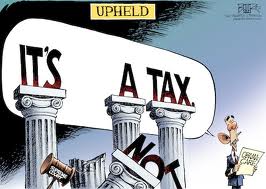
I am reading the morning’s internet today. As usual these days, I’ve come across a lot of health insurance stuff. And it got me to thinking. If we’re now going to allow individuals to wait until they get sick to purchase health insurance, and force companies to sell insurance to folks with pre-existing conditions AND make it illegal to adjust premiums based on an individual’s health risk, there is only one thing that can happen.
The price will go up.
So, I’m gonna try and track the cost.
Right now, the laziest and best historical example I have is from a September 2009 post where I was discussing the healthcare debate:
Ah, here’s one. $5000 deductible, Office visits are free after the deductible. 0% coinsurance. 149 a month. Oh yeah, and you can have an HSA.
Another: $5000 deductible, $15 office visits and 0% coinsurance. $229 a month.
One more: $1250 deductible, office visits are not covered and the coinsurance is 20%. $253 a month.
I was quoting from ehealthinsurance The above example is for a 52 year old man in Greensboro, NC who doesn’t smoke.
Let’s see what that costs today.
$5,000 deductible, 0% coinsurance, Office visits are free after deductible:
$132.00 per month.
Before Obamacare is implemented, the price of insurance has gone DOWN $17 a month. However, it seems to be on a policy by policy basis. The $1,250 – 20% – No Dr. visits plan?
$292.00 a month.
Now, how expensive in insurance for a 30 year man in the same ZIP?
The plan that offers $5,000 – 0% -No charge after deductible?
$62.24
The plan with the lowest deductible that is the cheapest looks like this:
$2,500 – 30% – $40 office visits:
$99.40 a month.
First, insurance isn’t that expensive today. I may not be very happy with a plan that offers a deductible as high as $5,000, but remember, we’re crafting a policy that protects against the #1 liberal complain, medical care shouldn’t force someone into bankruptcy. And a brake at 5k will do just that.
Let’s watch the policies in Greensboro’s 27403 ZIP code.






